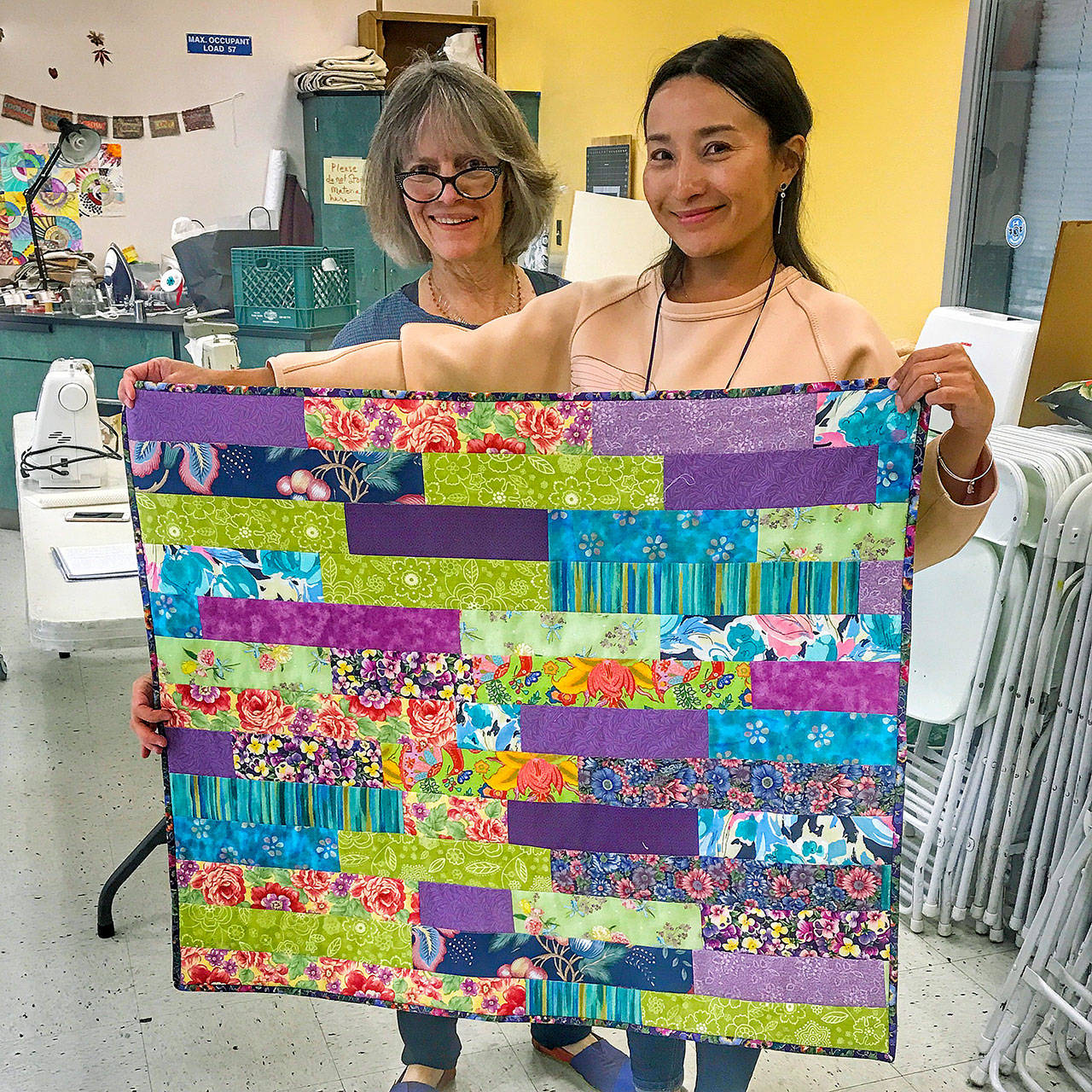Combining the generosity and artistry of the South Whidbey community with a healthy dose of activism, Luanne Seymour found a way to comfort children being held in detention centers.
A former art teacher, Seymour spearheaded a sewing group with friend Darcy Sinclair last May. They were hoping the vast amount of fabric they had to offer would attract the innumerable textile artists of the island to join them.
“We wanted to create an ongoing community,” Seymour said, “because I do think there’s a lot of people here who live alone and they just need a space to come make things with other people.”
Thus was the birth of Blankets for Kids, inspired by a Facebook group in California that was making blankets for immigrants children at detention centers.
Seymour wanted to help with this cause but also thought it might be a good idea to help kids locally. Working with the county’s Volunteer Guardian Ad Litem program, the Langley sewing group began crafting comfort items for Whidbey children in foster care.
“We wanted to help those kids by wrapping them up in love and caring,” Seymour said.
VGAL Program Coordinator Laurie Tuff said Blankets for Kids has also sewn bags for kids leaving dangerous housing situations to stow their belongings, making the process less humiliating.
“A lot of these kids when they come into care of the state, they don’t have a lot of personal belongings of their own,” Tuff said. “It’s just super nice for them to be able to have something very special, handmade locally, just for them.”
Blankets for Kids meets every Friday, from 9 a.m. to noon in Create Space in Langley. A generous donation from an anonymous donor has made it possible for the group to use the community space and sewing machines without paying rent.
All skill levels are welcome, as experienced sewers can teach the skill to newbies. Sewers may choose to make blankets for kids at the border, kids on Whidbey or both. So far the group has finished 62 blankets, in the course of less than a year. On average, a quilt takes about three to four weeks to complete.
Group projects are encouraged and essential to the success of Blankets for Kids. Seymour said there’s something very “soul-satisfying” about working with another person to make a blanket. Some people prefer picking fabrics and cutting them, others prefer the sewing itself.
The group is run entirely by volunteers and relies on donations. It currently has more than enough fabric, but the greatest need now is money to cover shipping costs. The first shipment to national organization Border Angels cost Seymour around $90. Other materials needed are thread, batting and washable yarn or wool.
Seymour is hoping Blankets for Kids can work with the sheriff’s office in the future to help distribute blankets and bags to victims of domestic abuse.
And for those who might find sewing or knitting an entire blanket too daunting, hats and baby blankets are projects welcomed as well.
“This way they can make something and participate,” Seymour said, “and it’s a small thing.”



